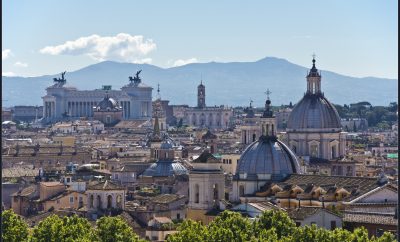 "Brazil - Flag" courtesy of [L.C. Nøttaasen via Flickr]
"Brazil - Flag" courtesy of [L.C. Nøttaasen via Flickr]
News
Impeached in Brazil: President Booted Amid Scandal and Public Outrage
Signaling the beginning of the end for Brazil’s President Dilma Rousseff, the Senate voted on Thursday in favor of impeaching the 68-year-old leader of Latin America’s largest country. She will be stripped of her duties for 180 days while the Senate holds a trial and debates whether to remove her from office permanently. Vice President Michel Temer will lead the country in the interim.
Rousseff has called the impeachment proceedings a “coup” and “fraudulent.” Her response to the day’s events, which saw the Senate vote 55 to 22 in favor of her impeachment: “It’s the most brutal of things that can happen to a human being—to be condemned for a crime you didn’t commit,” she said at a news conference Thursday morning. “I may have committed errors but I never committed crimes.”
Riordan Roett, Professor and Director of the Latin American Studies Program at Johns Hopkins University called the result “inevitable,” adding that Rousseff is “not a politician and did not understand how to work the system.”
“The mood of the country turned so negative,” said Roett, who is also a member of the Council on Foreign Relations, in an interview with Law Street. “It’s a combination of the scandals, increasing unemployment, increasing inflation, and the worst recession in a hundred years.”
Mistrust and public disapproval began in 2014, when members of her government, but not the president herself, were implicated in a corruption scandal involving the state-owned petroleum giant Petrobras. Calls for impeachment followed in 2015 after Rousseff was allegedly using illicit accounting practices to cover up the country’s sinking economic statistics.
Brazil’s economy has been tanking for years, with the central bank announcing in March that it expects the economy to shrink 3.5 percent in 2016, continuing the country’s worst recession in decades. Over the past year, millions of Brazilians have taken to the streets to protest Rousseff’s government. Seas of green and yellow gathered in Brasilia–the capital–and beyond: people waving flags and brandishing protest signs, wearing national soccer jerseys, some had their faces painted in the image of the country’s flag.

Dilma Rousseff, Brazil’s president of six years, was impeached on Thursday, after months of political and social unrest. “Presidente da República Dilma Rousseff concede entrevista” courtesy of Senado Federal via Flickr
Her political opponents saw Thursday’s impeachment as necessary, the consequence of Rousseff breaking the law by allegedly trying to cover up government deficits and her role in the bribe scandal that rocked Petrobras–where executives paid politicians for contracts–in 2014. Rousseff was chairwoman of the Petrobras–the world’s sixth largest oil company–from 2003 to 2010.
“Did anyone think that we would get to 2018 [the next election year] with a recovery under this government? Impossible,” said Jose Serra of the PSDB, or Party of Brazilian Social Democracy, who lost the 2010 election to Rousseff’s Workers’ Party. “The impeachment is just the start of the reconstruction,” he said.
And that reconstruction will begin with Michael Temer, the 75-year-old of the centrist Democratic Movement Party who was also implicated in the Petrobras ordeal. He has promised to expand social programs while also calling for austerity measures to get the economy back on track.
While polls show a slim majority of Brazilians support Rousseff’s ouster (61 percent in April), and wish the same fate for Temer (58 percent), her supporters deem the impeachment as a machination of the right-leaning political elite that has historically dominated the country’s politics, but has taken a backseat to the leftist Workers’ Party since it rose to prominence 13 years ago.
In April, when the first round of voting to impeach Rousseff passed through the lower house of Congress, her supporters expressed malcontent with what they saw as a conservative coup.
“Power in Brazil is always very conservative and elite, and at various events in the history of Brazil, we had a rupturing of institutions and the rules of democracy so that the economic elite could maintain its power,” Workers’ Party Congress member Maria do Rosario told the Globe and Mail, a Canadian newspaper.
But Roett, the Johns Hopkins professor who has spent years in Brazil, disagreed with that assessment and with Rousseff’s claim that this is a coup by the right. “This reflects the mood of the country,” he said, noting that the history of the word “coup” dates back to the military coup of 1964, and Rousseff’s inclination to brand her political downfall with that loaded word. “People resented her attempt to glamorize herself,” by posing as the martyr of a political scheme.
And while he sees a long road ahead for Brazil–opening the economy, liberalizing labor legislation, reducing inflation and creating jobs–Roett is hesitantly hopeful about the country’s new leader.
“Let’s see if Temer can build the coalition that Rousseff never could,” he said.








Comments